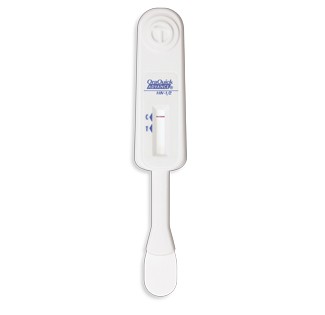The Time Is Now to End the HIV Epidemic
The year 2021 marks the 40th anniversary of the first reported case of HIV/AIDS in the United States. A debilitating disease that has afflicted millions of Americans and people around the world, the HIV epidemic entering its fifth decade represents a somber milestone.
A Critical Public Health Risk
In the early days of HIV/AIDS, the disease was often politicized and placed in a cultural context as opposed to being recognized as a critical public health risk, often to the great detriment of the many affected marginalized communities. However, through multi-stakeholder collaboration between public and private organizations and enterprises (often led by the same communities most heavily affected), great advances in HIV prevention and treatment have been made over the past four decades.
In 2021, HIV/AIDS is no longer the death sentence it once was. With proper detection and medication, it is easier than ever to mitigate exposure to and live with HIV. While that in itself is a true sign of accomplishment, HIV still remains a persistent public health threat. According to the CDC an estimated 1.2 million Americans have HIV, with one in seven of those Americans unaware of their infection1.
Unfortunately, the same communities who were heavily impacted by AIDS 40 years ago continue to remain vulnerable. MSM (men who have sex with men) are the most affected population in the United States, accounting for approximately 69% of all HIV cases2. Regarding race, African Americans account for over 40% of all new HIV diagnoses in the United States3. As we continue to work toward a future without HIV, it is important that we are creating this future for all.
Making Tests Available to Everyone
OraSure is a proponent of the democratization of testing and making diagnostic testing devices that help detect diseases, such as HIV, available to all. The CDC recommends that “everyone between the ages of 13 and 64 get tested for HIV at least once as part of routine healthcare. For those at higher risk, the CDC recommends getting tested at least once a year.”4
Early and accurate detection of HIV allows providers to link people to care and slows the spread of the virus in their communities. Detection is the first line of defense against HIV and that means continuing to make sure those who need to be tested, continue to be, even during the COVID-19 pandemic. After 40 years, we are near the finish line. Let’s work together to finally end this epidemic.
1 https://www.cdc.gov/hiv/testing/index.html
2 https://www.hiv.gov/hiv-basics/overview/data-and-trends/statistics
3 https://www.hiv.gov/hiv-basics/overview/data-and-trends/statistics
4 https://www.cdc.gov/hiv/testing/index.html
OraQuick ADVANCE™ Rapid HIV-1/2 Antibody Test
The OraQuick ADVANCE™ Rapid HIV-1/2 Antibody Test is a rapid HIV test, supporting several specimen types, including fingerstick whole blood and oral fluid. With oral fluid testing, providers can perform an HIV test while respecting social distancing guidelines, mitigating potential exposure to COVID-19 for provider and patient.
Product benefits
OraQuick ADVANCE™ Rapid HIV 1/2 Antibody Test
- Multiple specimen types supported including oral fluid, fingerstick whole blood, venipuncture whole blood and plasma
- >99% accurate across all specimen types
- Less than 1 minute of hands-on time; results in as little as 20 minutes
- Comparable to third generation lab-accurate results
- Able to detect acute infections approximately 20 to 25 days after infection
- Walk-away procedure allows providers to batch tests, processing multiple tests at one time
